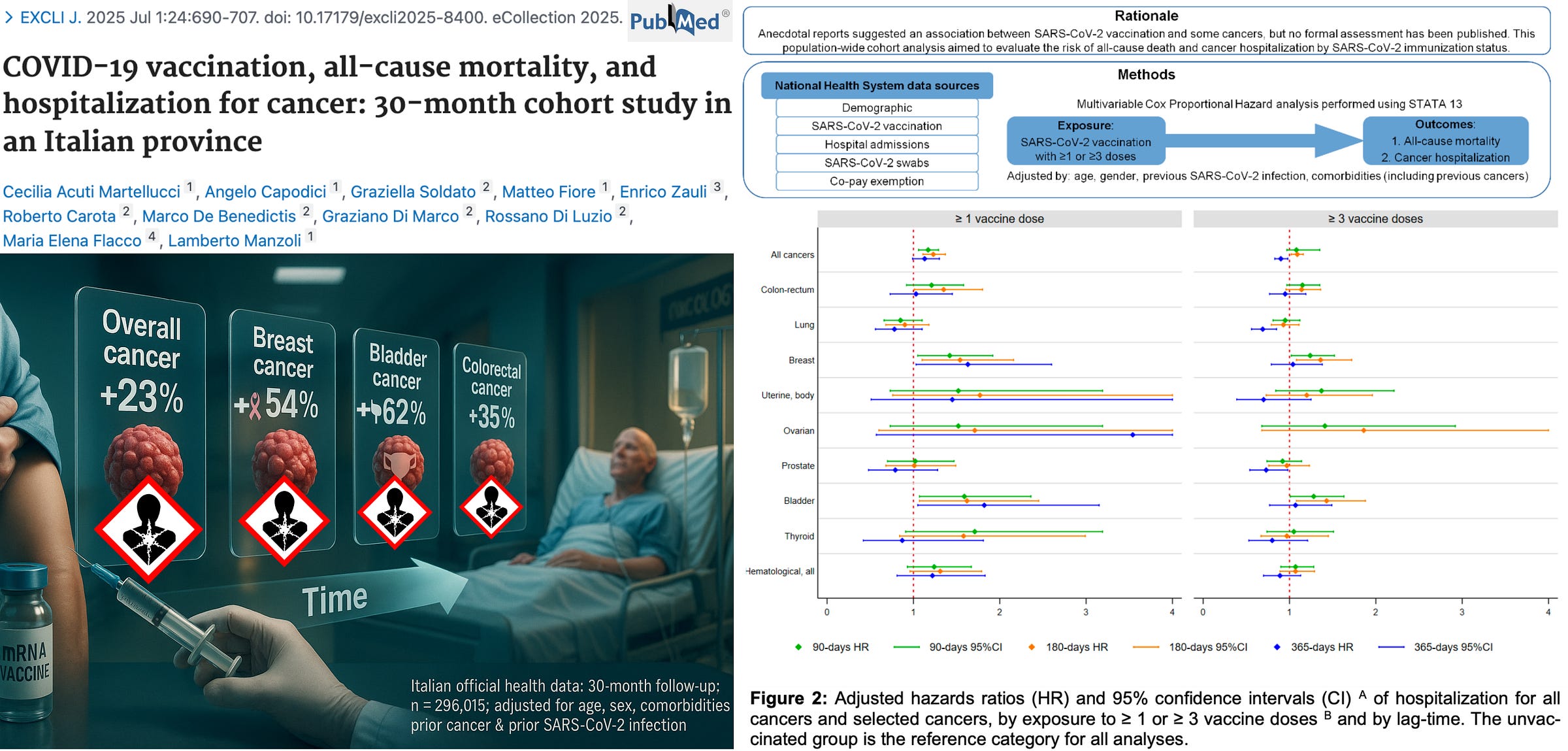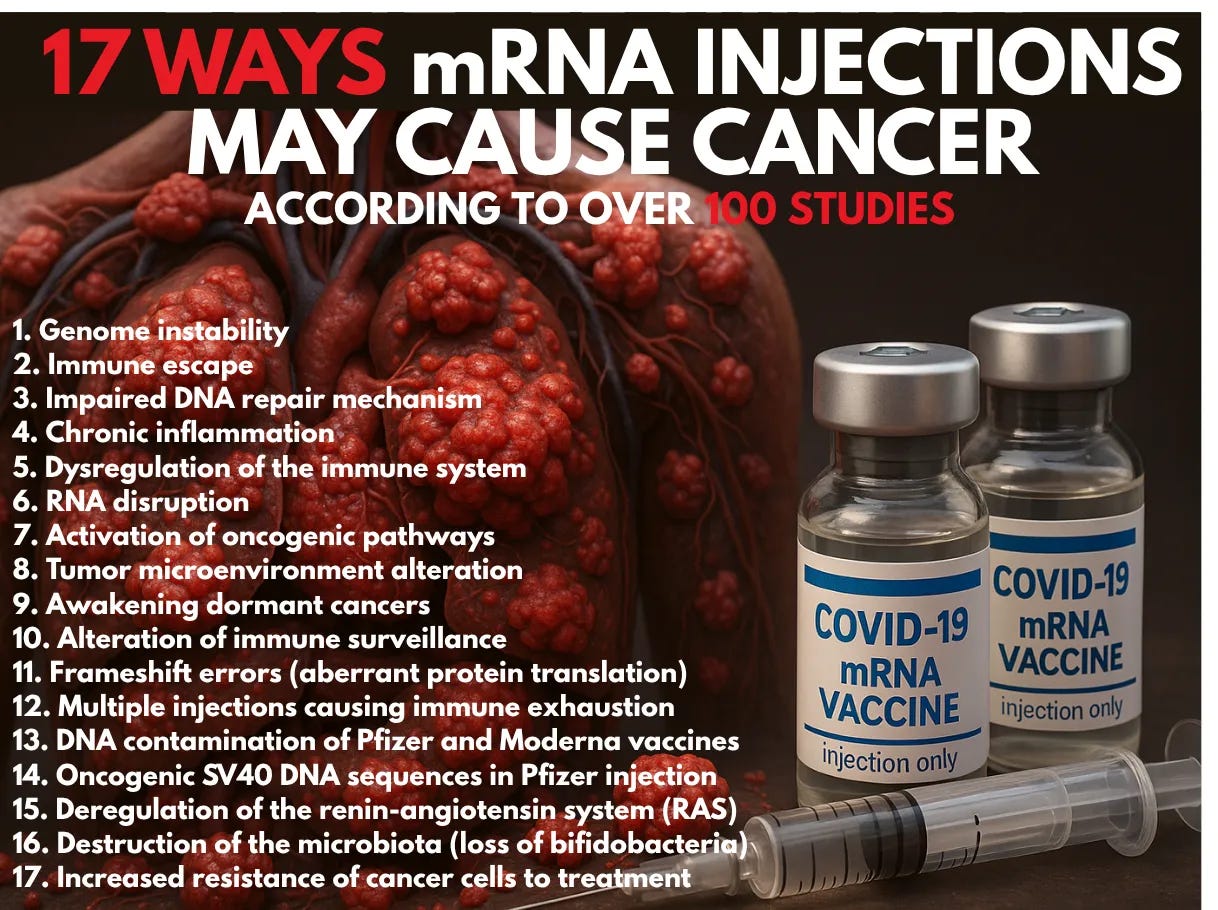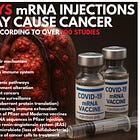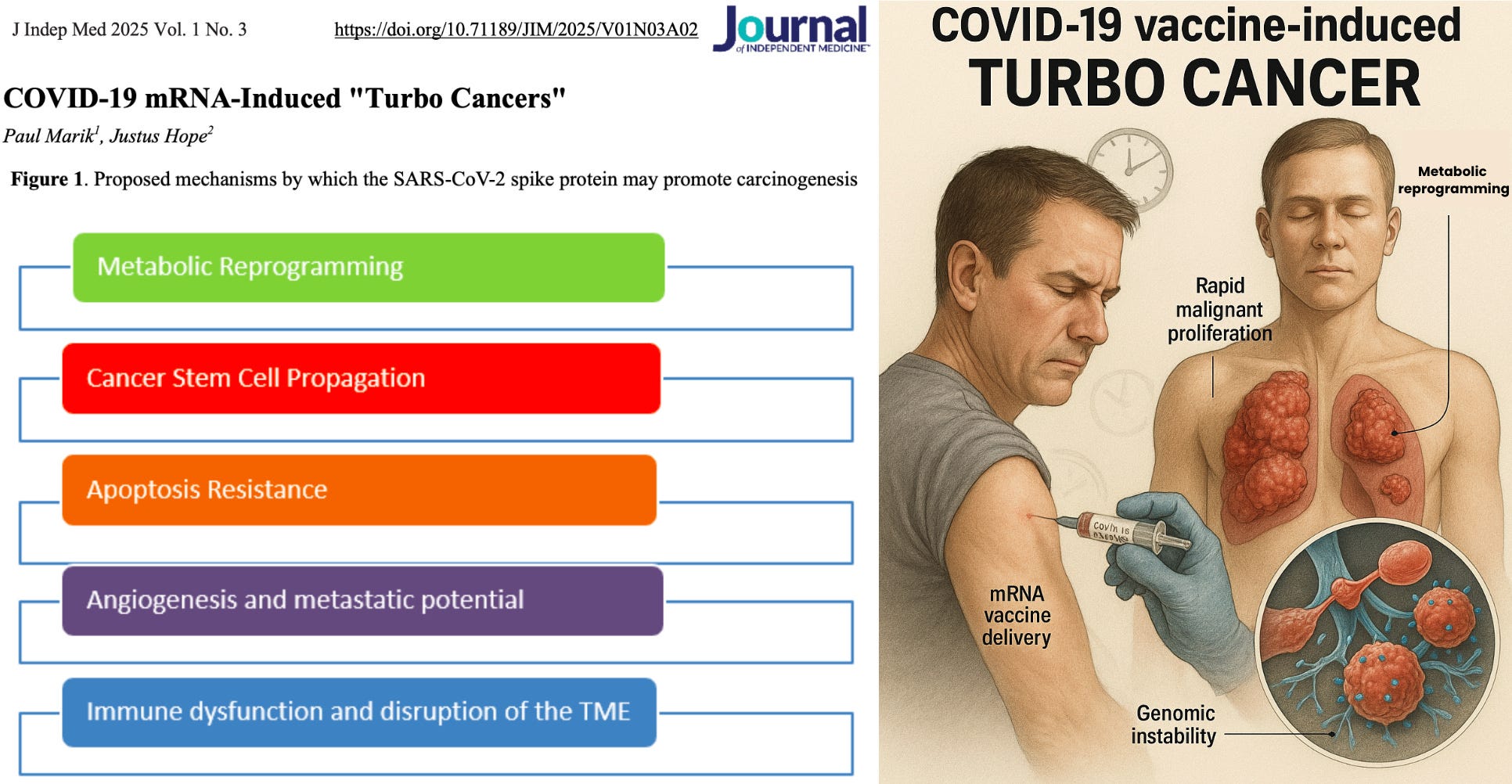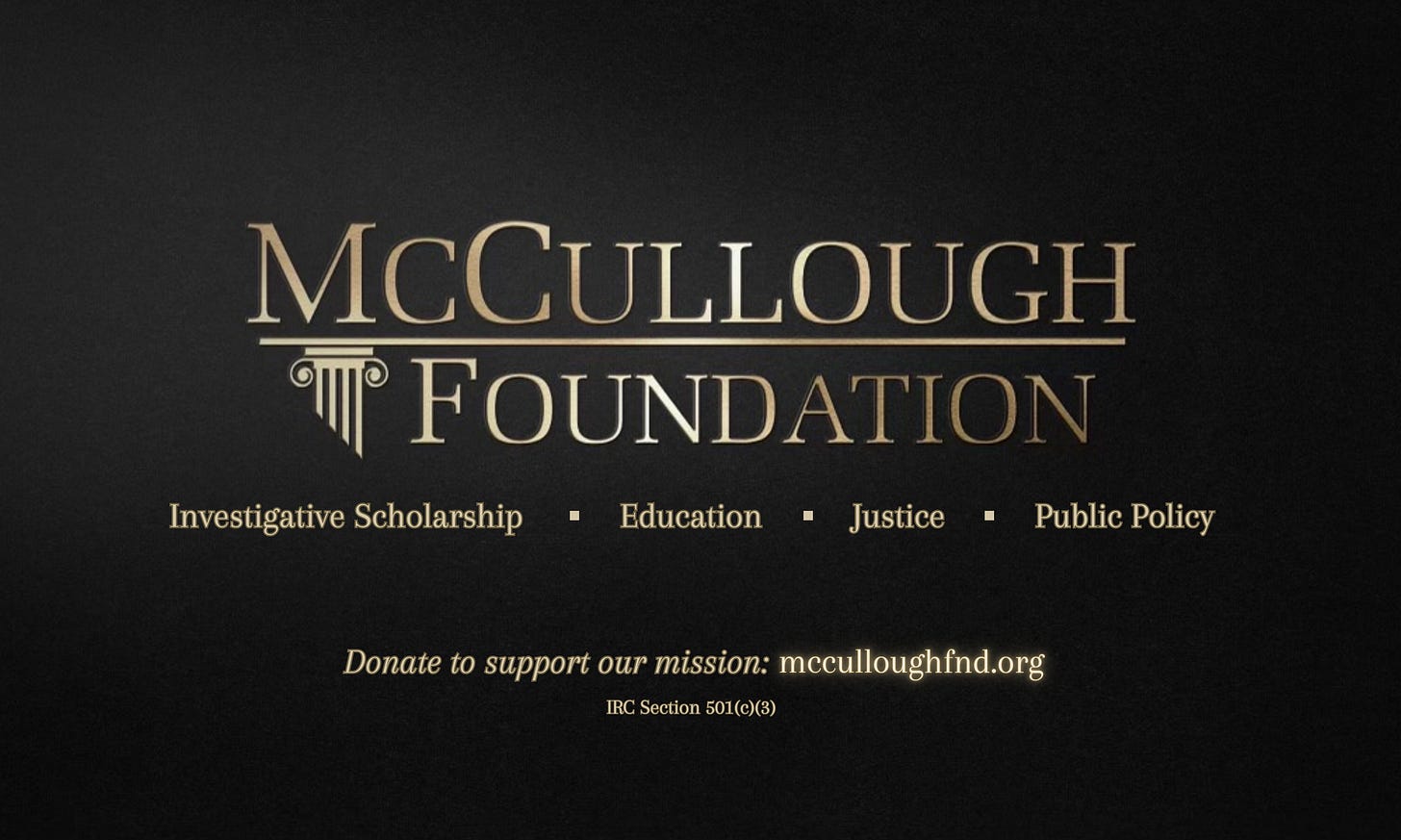BREAKING: First Population-Wide Study Finds COVID-19 "Vaccines" Increase Risk of Multiple Cancers
Official government data from nearly 300,000 people tracked for 30 months show mRNA shots significantly increase the risk of overall cancer, breast cancer, bladder cancer, and colorectal cancer.
A groundbreaking new peer-reviewed study has just been published in EXCLI Journal. For the first time, researchers formally analyzed the long-term relationship between COVID-19 vaccination and cancer hospitalizations in a population-wide cohort of nearly 300,000 residents of Pescara province, Italy.
The study followed every resident aged ≥11 years for 30 months (June 2021 through December 2023) using official National Health Service data. The main vaccines administered were Pfizer-BioNTech (Comirnaty) and Moderna (Spikevax) mRNA shots, with smaller proportions receiving AstraZeneca (Vaxzevria) and Janssen (Johnson & Johnson) viral vector vaccines.
Importantly, the statistical models were adjusted for age, sex, comorbidities (diabetes, hypertension, cardiovascular disease, COPD, kidney disease), prior cancer, and prior SARS-CoV-2 infection — ensuring that infection status was explicitly taken into account. This makes it the longest and most comprehensive follow-up to date on cancer outcomes after COVID-19 vaccination.
The results are deeply concerning: while the study shows the expected biases that make vaccines look like they reduce overall death rates, it also uncovers the first statistically significant evidence of increased cancer risk following COVID-19 vaccination.
THE FIRST FORMAL SIGNAL: INCREASED CANCER RISK
Despite strong “healthy vaccinee bias” (explained below), the study still found multiple increases in cancer hospitalizations among vaccinated individuals.
Overall cancer risk:
+23% increased risk after ≥1 dose (HR 1.23, 95% CI 1.11–1.37) (statistically significant)
+9% increased risk after ≥3 doses (HR 1.09, 95% CI 1.02–1.16) (statistically significant)
BY CANCER SITE (Hazard Ratios Converted to % Increased Risk)
Breast cancer
+54% with ≥1 dose (HR 1.54, 95% CI 1.10–2.16) (statistically significant)
+36% with ≥3 doses (HR 1.36, 95% CI 1.08–1.72) (statistically significant)
Bladder cancer
+62% with ≥1 dose (HR 1.62, 95% CI 1.07–2.45) (statistically significant)
+43% with ≥3 doses (HR 1.43, 95% CI 1.08–1.88) (statistically significant)
Colon-rectum cancer
+35% with ≥1 dose (HR 1.35, 95% CI 1.01–1.80) (statistically significant)
+14% with ≥3 doses (HR 1.14, 95% CI 0.96–1.36) (not statistically significant)
Hematological cancers (leukemia/lymphoma)
+31% with ≥1 dose (HR 1.31, 95% CI 0.96–1.79) (not statistically significant)
+7% with ≥3 doses (HR 1.07, 95% CI 0.89–1.29) (not statistically significant)
Uterine cancer
+77% with ≥1 dose (HR 1.77, 95% CI 0.76–4.13) (not statistically significant)
+20% with ≥3 doses (HR 1.20, 95% CI 0.73–1.96) (not statistically significant)
Ovarian cancer
+71% with ≥1 dose (HR 1.71, 95% CI 0.60–4.82) (not statistically significant)
+86% with ≥3 doses (HR 1.86, 95% CI 0.68–5.12) (not statistically significant)
Thyroid cancer
+58% with ≥1 dose (HR 1.58, 95% CI 0.84–2.99) (not statistically significant)
-3% with ≥3 doses (HR 0.97, 95% CI 0.67–1.45) (not statistically significant)
Prostate cancer
+1% with ≥1 dose (HR 1.01, 95% CI 0.68–1.49) (not statistically significant)
-3% with ≥3 doses (HR 0.97, 95% CI 0.76–1.23) (not statistically significant)
Lung cancer
-10% with ≥1 dose (HR 0.90, 95% CI 0.68–1.18) (not statistically significant)
-7% with ≥3 doses (HR 0.93, 95% CI 0.79–1.11) (not statistically significant)
WHAT THIS MEANS
The strongest, statistically significant increases were found for breast, bladder, colorectal, and overall cancer risk.
Nearly all other cancer sites also showed an upward trend, though not statistically significant due to wide confidence intervals.
Only lung and prostate cancers showed no evidence of increased risk.
This pattern suggests a real signal that is partially obscured by confounders and limited follow-up time.
HEALTHY VACCINEE BIAS — WHY CANCER RISK MAY BE UNDERESTIMATED
The authors warn that the same bias making vaccines look like they reduce deaths could also underestimate cancer risks.
The vaccinated are more likely to engage in preventive healthcare, screenings, and early interventions.
This should have reduced their cancer hospitalization rates — yet increases were still found.
Therefore, the true cancer risk attributable to vaccination may be stronger than what this study detected.
THE MORTALITY PARADOX
The study also reported that vaccinated people had:
42% lower risk of death after ≥1 dose (HR 0.42, 95% CI 0.39–0.44)
35% lower risk of death after ≥3 doses (HR 0.65, 95% CI 0.62–0.67)
At face value, this suggests vaccines prevented all-cause mortality. But biologically, this is impossible. Instructing vital organs to become toxic, non-human spike protein factories simply can not improve health outcomes.
The authors themselves acknowledge this contradiction, writing that the reduction in mortality “exceeds what could be expected from COVID-19 deaths” and is likely due to the healthy vaccinee effect — healthier, wealthier people were simply more likely to get vaccinated.
This bias means the real cancer signals might be even worse than reported.
TURBO CANCERS CONFIRMED
Findings of increased cancer risks following COVID-19 mRNA injection are consistent with previously published evidence.
A recent literature review outlined over 100 peer-reviewed studies that indicate mRNA injections may cause or accelerate cancer via 17 distinct biological mechanisms:
Moreover, a new peer-reviewed paper titled, COVID-19 mRNA-Induced "Turbo Cancers", formally defines this fatal syndrome and compiles the growing body of clinical cases, epidemiological signals, and mechanistic pathways explaining how COVID-19 mRNA shots and the spike protein may drive sudden, aggressive, treatment-resistant cancers:
These data help explain the 115,580 excess cancer deaths recorded in the U.S. since the launch of the mass COVID-19 mRNA injection campaign. Analysis of official CDC datasets by the Ethical Skeptic reveals that excess cancer mortality continues to persist in 2025:
CONCLUSION
The first large-scale, peer-reviewed, population-wide cohort study with 30 months of follow-up documented increased cancer risks following COVID-19 vaccination.
Significant rises were found for breast, bladder, and colorectal cancers, as well as a +23% increase in overall cancer hospitalizations.
Most other cancers trended upward, even if not statistically significant.
Findings corroborate previously published data.
The apparent reduction in all-cause mortality is an artifact of bias, not biology.
The true picture may be far worse once longer-term data and cancer registry records are available.
One thing is clear: mass COVID-19 “vaccination” campaigns unleashed a turbo cancer epidemic.
The McCullough Foundation will continue to fight for truth, accountability, and restoration of public health — and we ask for your support as we press forward in this historic battle against Goliath: mcculloughfnd.org/products/donate-1
Epidemiologist and Foundation Administrator, McCullough Foundation
Support our mission: mcculloughfnd.org
Please consider following both the McCullough Foundation and my personal account on X (formerly Twitter) for further content.



